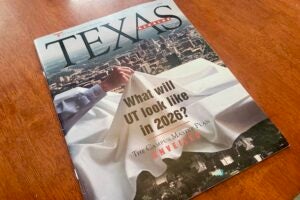Falling in love is intoxicating. It feels unplanned and unconstrained, wild horses of emotion impossible to control. When in its grip, love crowds out other thoughts. It produces an exhilaration unmatched. Pain when apart becomes excruciating. Elation when reunited soars. Could this enrapturing psychological cocktail of hormones and emotions have an evolutionary function?
Standard thinking in the social sciences has told us no — that romantic love is a recent and capricious emotion, a cultural construction invented by European poets a few hundred years ago. Modern science has overturned this parochial view. Love turns out to be a human universal. People in all cultures experience love.
Consider this quote by Nisa, a traditional !Kung woman from Botswana, Africa: “When two people are first together, their hearts are on fire and their passion is very great. After a while, they continue to love each other, but in a different way — warm and dependable.” My studies of what people want in a mate in 37 cultures around the globe confirm that Nisa speaks for many of us. People everywhere prioritize love in mate selection, even in cultures that try to suppress it.
If love is a human universal, what might be its evolutionary purpose? Research from my lab and many others has converged on a specific function — love is an emotion that evolved to serve as a commitment device. If a partner chooses you for rational reasons, he or she might leave you for the same rational reasons: finding someone slightly more desirable on all of the “rational” criteria.
This creates a commitment problem: How can you be sure that a person will stick with you? If your partner is blinded by an uncontrollable love that cannot be helped and cannot be chosen, a love for only you and no other, then commitment will not waver when you are in sickness rather than in health, when you are poorer rather than richer.
Love overrides rationality. It’s the emotion that ensures that you won’t leave when someone a bit more desirable comes along. Love, in short, helps to solve the commitment problem, providing a strong signal to the partner of long-term intent and resolve.
The causal arrow almost certainly also runs the other way. Love may be the psychological reward we experience when the problem of commitment is successfully being solved. It’s a mind and body opium that signals that the adaptive problems of mate selection, sexual congress, devotion and loyalty have met with triumph.
The scientific explanation is that evolution has installed in the human brain reward mechanisms that keep us performing activities that lead to successful reproduction. And it emerges almost exclusively in long-term committed mateships, not in causal hookups or one-night Tinder dates.
The down side, of course, is that the drug sometimes wears off. Its loss leads to anguish as heartbreaking as its consummation is euphoric. Studies show that 85 percent of us have experienced at least one romantic breakup. When the loss is asymmetric, the spurned partner suffers more — a blow to self-esteem, a sense of humiliation, a sense of despair that the lost partner is irreplaceable, and sometimes a jealous rage. Occasionally, thoughts of violence or suicide occupy the minds of the jilted.
But humans are remarkably resilient. We rally from setbacks. Despite myths about “the one and only,” most people recover and often discover love anew. More people should know that evolution has equipped us with the glories of love, the strength of spirit to rebound from its loss and the fortitude to throw ourselves back into life again. And on Valentine’s Day, we might pause and thank our successful ancestors who gave us these precious gifts.
David M. Buss is a professor of psychology at The University of Texas at Austin. His most recent book is “The Evolution of Desire: Strategies of Human Mating” (2016).
A version of this op-ed appeared in the Beaumont Enterprise, McAllen Monitor and the Austin American Statesman.
To view more op-eds from Texas Perspectives, click here.
Like us on Facebook.




